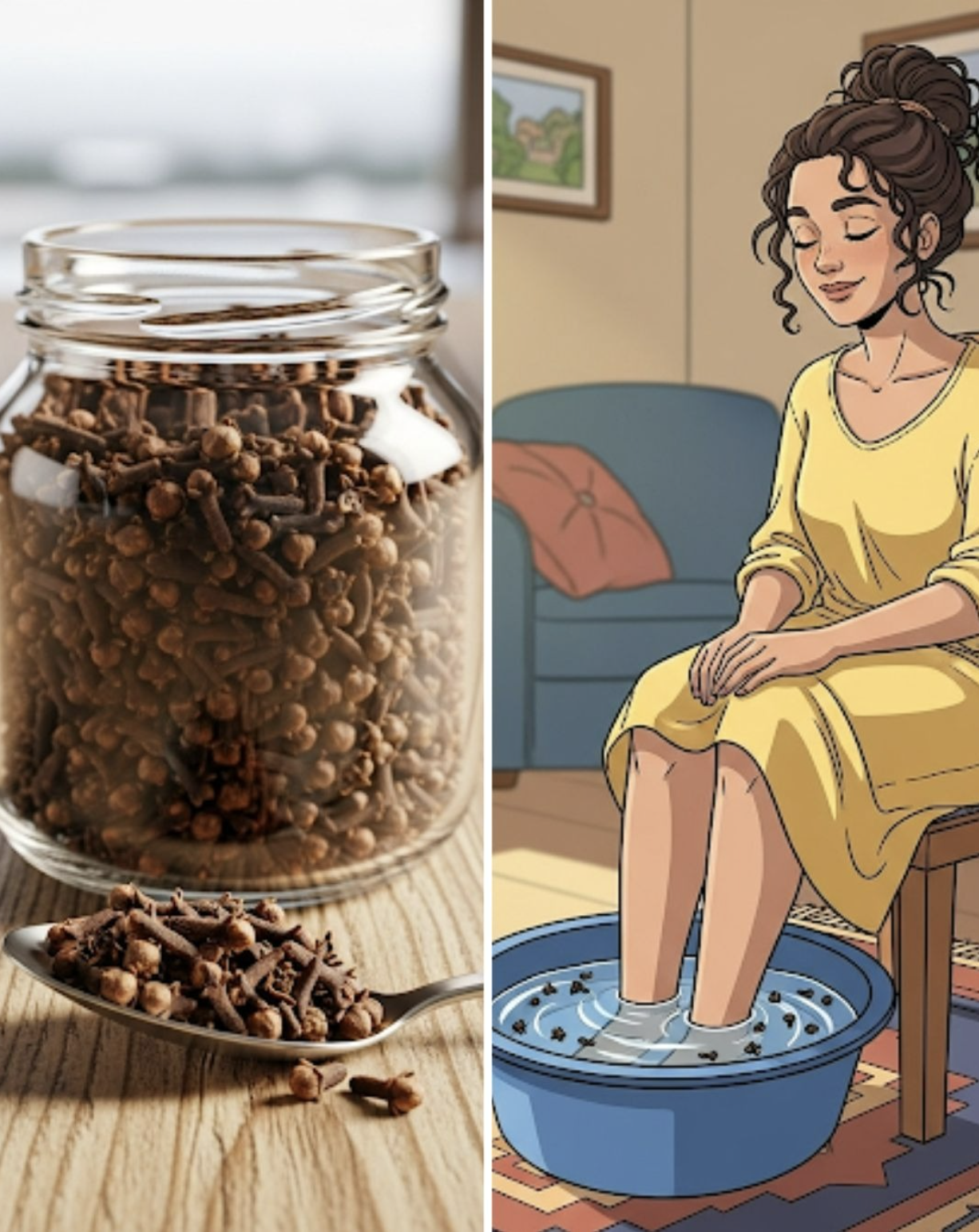- Eugenol, the main compound in clove oil, is a natural anesthetic and antiseptic
- Dentists have used it for decades in temporary fillings and pain-relief treatments
- Studies show clove oil can be as effective as benzocaine for numbing oral pain
✅ Try: A diluted drop of food-grade clove oil on a cotton ball for temporary toothache relief (not for children under 2).
2. Rich in Antioxidants
- Cloves have one of the highest antioxidant levels of any spice — even more than cinnamon or oregano
- Antioxidants fight free radicals and reduce oxidative stress — a root cause of chronic diseases
- High in phenolic compounds and vitamin C
📊 A study in Journal of Medicinal Food found cloves have 30 times more antioxidant activity than blueberries (by weight).
3. Supports Digestive Health
- Stimulates digestive enzymes and gastric secretions
- Helps reduce bloating, gas, and indigestion
- Traditionally used to calm nausea and motion sickness
🌿 In Ayurveda, cloves are said to “kindle the digestive fire” (agni).
4. Antimicrobial & Antifungal Properties
- Lab studies show clove extract can inhibit:
- Bacteria (including E. coli and Staph)
- Fungi (like Candida albicans)
- Viruses (in controlled settings)
- Makes it useful in natural oral care and food preservation
5. May Help Regulate Blood Sugar
- Animal and test-tube studies suggest clove extract can:
- Improve insulin sensitivity
- Lower blood glucose levels
- Contains nigericin, a compound that may help cells absorb sugar more effectively
🔬 Human trials are limited — but promising for metabolic health.
6. Liver Protection
- Eugenol has been shown to reduce liver inflammation and fat accumulation in animal studies
- May support detoxification pathways in the liver
✅ Helpful as part of a liver-supportive diet — but not a treatment for liver disease.
7. Anti-Inflammatory Effects
- Chronic inflammation is linked to arthritis, diabetes, and heart disease
- Clove compounds help reduce inflammatory markers in the body
✅ A great addition to an anti-inflammatory diet.
🍽️ How to Use Cloves for Wellness
1. Clove Tea (Simple & Soothing)
Recipe:
- 1 cup boiling water
- 3–4 whole cloves
- Optional: cinnamon stick, lemon slice, or raw honey
Steep for 5–10 minutes. Strain and enjoy warm.
✅ Great for sore throat, digestion, or cold season.
2. Diluted Clove Oil (For Oral or Topical Use)
- Mix 1–2 drops of food-grade clove oil with 1 tsp carrier oil (like coconut or olive oil)
- Use for:
- Toothache relief
- Minor skin irritations (patch test first)
- Natural cleaning spray (antimicrobial)
⚠️ Never use undiluted — can burn skin or damage tooth enamel.
3. Homemade Mouthwash
- 1 cup water
- 1 tsp baking soda
- 1–2 drops clove oil
- 1 drop tea tree oil
Swish for 30 seconds.
✅ Freshens breath and supports gum health.
4. In Cooking
- Whole cloves: Add to rice, soups, stews, or mulled drinks (remove before eating)
- Ground cloves: Use in baked goods, spice blends (like garam masala), or smoothies
🍏 Pair with cinnamon and nutmeg for immune-supportive warmth.
⚠️ Safety Tips & Precautions
While cloves are safe in culinary amounts, caution is needed with concentrated forms:
🩺 Always talk to your doctor before using cloves medicinally — especially if you have a medical condition.
Final Thoughts
Cloves may be small, but their impact is anything but.
From ancient spice trade routes to modern dental offices, this humble bud has stood the test of time — not because of hype, but because it works.
So next time you reach for cinnamon, don’t forget the clove.
Sprinkle it in your oatmeal.
Brew it into tea.
Use it to ease a toothache.
Because sometimes, the most powerful medicine isn’t in a bottle —
it’s in your spice rack.
